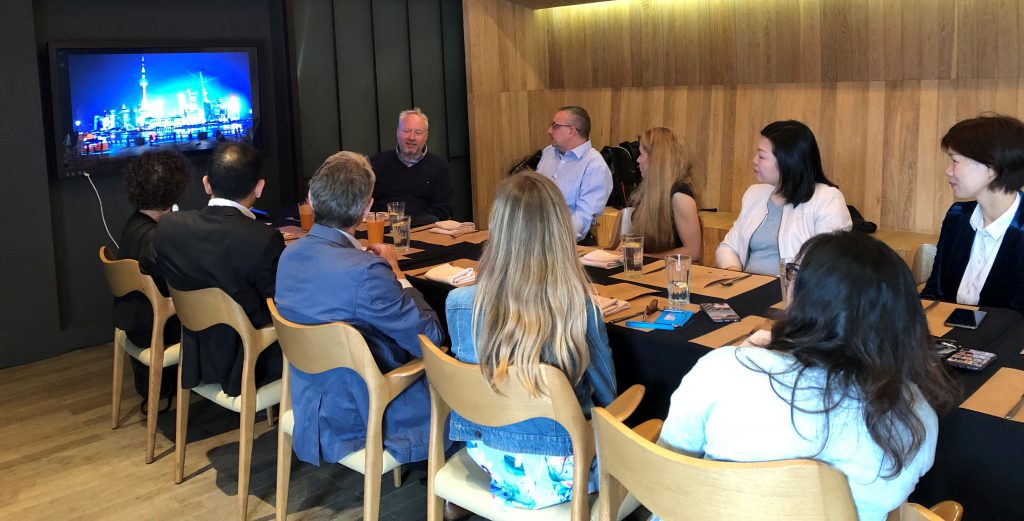The topic of this month’s luncheon is the development of China’s Circular Economics and Materials.
It is a topic that has gained a lot of attention overseas over the last few years, however in China as we have seen through the recent import waste bans, disposable plastic bags, and industry park levels, there are a lot of trends that are growing in important.
In terms of this, CR provided the opportunity for corporate executives to learn and discuss more about recent regulations, consumer trends and technologies supporting the development of a circular economy.
We were honored to have Monique Maissan, the CEO and Founder of Waste2Wear to be our speaker for this session, and also thank to our guests from ARCADIS, PACT Environmental Technology, LOREAL, Amrop China and Blue Focus Communications for your participation and passionate discussion.

During the Luncheon, the founder of Collective Responsibility Richard Brubaker shared the importance of driving awareness of key social and environmental challenges to existing economic and business models, introduced the recent status that CR found of the city to deal with different types of waste and driven the discussion of the current garbage classification for both hotels and community.
Rich stated that circular economy in China is driven less by theory but more by economics – informal waste stream, and the regulation of those waste is starting mainly from three parts including waste ban, household/community separation and hotel & restaurant disposable ban. Follow up with those new regulation, there will be more details about waste transportation, supervision and punishment rules and many other uncertain solutions to be discussed.
Then our speaker Monique shared how do Waste2Wear take action to reduce plastic waste by innovating the textile industry with different cases and a vivid video. Monique introduced the process of turning plastic bottles into fabrics. She also shared some products such as dresses, pouches, bags and uniforms which are all made by plastic. Monique also told us that currently she is greatly involved in a very large initiative: The Plastic Ocean Project in China. The project is designed to take plastic out of the ocean in partnership with different stakeholders, aims to identify, quantify, replace and recycle, different types of waste on coastal areas in order to create upstream solutions and drive policy change.
There were a number of discussions follow up Rich and Monique’s sharing, the ones that were of greatest importance for all participants was supervision and follow up action of the waste separation. As everyone who are required to do waste separation want to see how and where the waste will go, and for those who doesn’t want to follow the policies, there need to be a feasible supervision policy come out. As for corporates, the conversations were also focused on how to balance the cost efficiency and support the regulation well at the same time.
After the event, CR also shared their Shanghai Food Waste Management Report and China Informal Waste Report to the participants for further reference and discussion. We believe all the participants enjoyed the session and get insightful ideas from the luncheon.
Next month, we will arrange the discussion about Food and Agriculture. Stay tuned, and you are more than welcome to join us!
Please feel free to contact us if you have any ideas/questions to share or if you want to participate the next round’s event.
We look forward to seeing you all in April at the next luncheon, where we have two of Asia’s leading food entrepreneurs speaking about the future of food in China.
